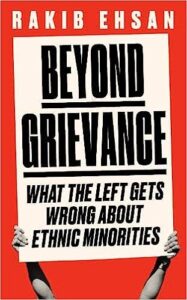There is no way to spin it – the latest English local elections were a magnificent disaster for the Tories.
With only one council left to announce their results (Redcar and Cleveland in North Yorkshire, which will resume counting after bank holiday Monday), the Tories have lost 1,061 councillors (at the time of writing). Labour, gaining 536 councillors, is now the largest party in local government – overtaking the beleaguered Tories for the first time since 2002.
There were some stunning gains for Labour. Much of the focus has been on gaining control of councils such as Dover, Medway, Swindon, Plymouth, and Stoke-on-Trent. But there were also hugely impressive results in the provincial East Midlands.
In Amber Valley, Derbyshire, Labour wrestled control of the council from the Conservatives – the former gaining 15 councillors and the latter losing 21. Labour also won control of Erewash. The Tories, who had been in control of the council since 2003, lost 11 councillors as Labour gained nine. Labour also gained control of North East Derbyshire, gaining ten councillors as the Tories lost 11. The local authority includes the former mining village of Shirland. Labour also gained control of High Peak.
Over in Nottinghamshire, Labour gained control of Broxtowe, which it hasn’t controlled since 2003. This may well be Labour’s most impressive result of all – gaining 12 councillors as the Tories and Liberal Democrats lost ten and two respectively. The local authority includes the ex-mining town of Eastwood. Labour also gained control of Mansfield, where it now has 25 out of 36 councillors.
While Labour failed to make much headway in Tory-controlled authorities in the provincial West Midlands such as Dudley and Walsall, it had a field day in the Brexit-voting East Midlands – and that does bode well ahead of next year’s general election.
The party should guard against complacency, but Labour has reasons to be optimistic as it looks to return to government.
